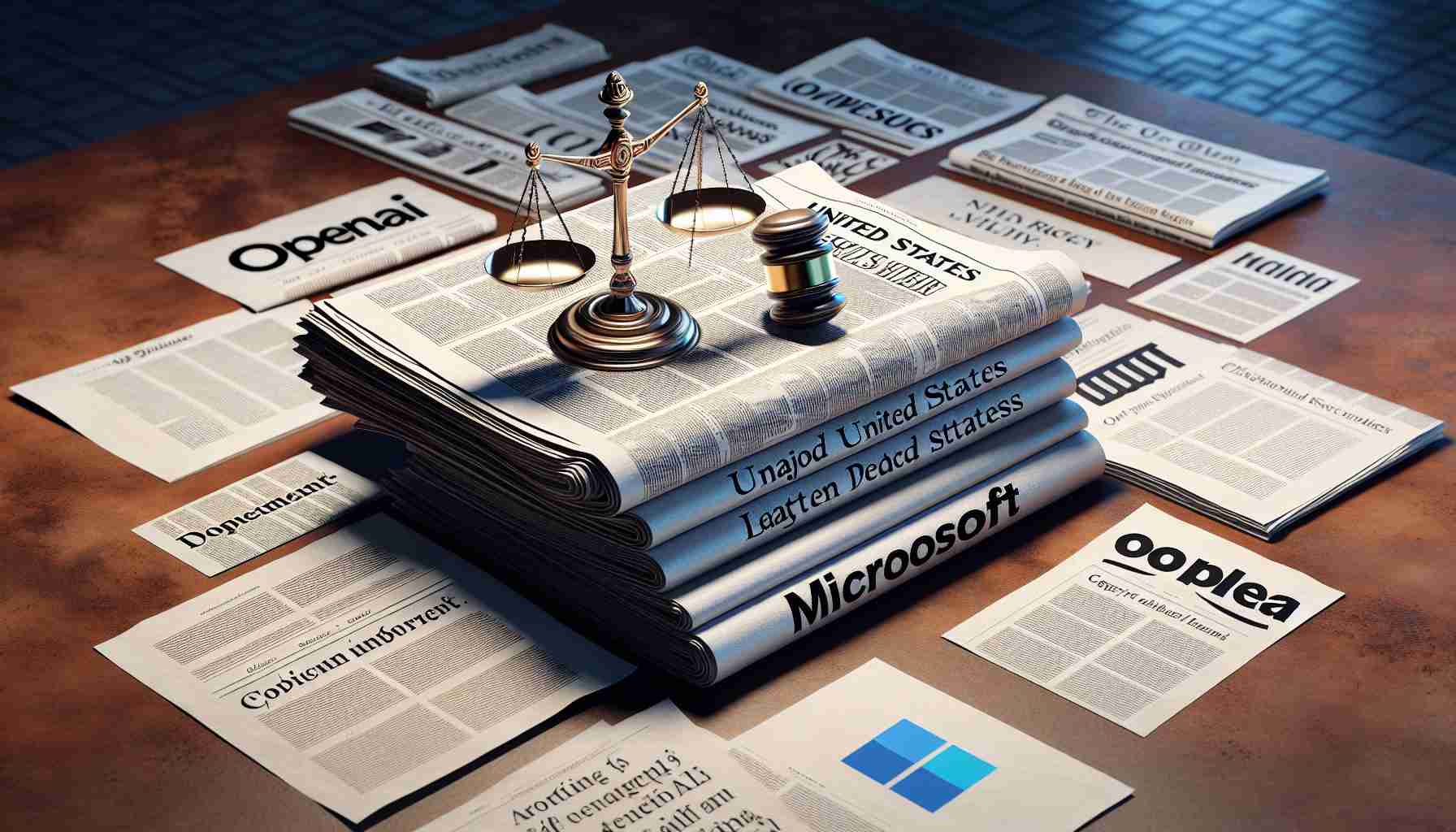Eight Prominent American Publications Take Legal Stand Against AI Technology
Eight leading U.S. newspapers, including Chicago Tribune, have initiated legal action against the AI tech company OpenAI, the brains behind ChatGPT, and its main investor, Microsoft. The publishers allege that these tech giants have unlawfully appropriated copyrighted articles for their AI technology, without permission or compensation. The contentious lawsuit was lodged in a New York court.
Media Properties Unified Under Alden Global Capital Defend Intellectual Property
These plaintiffs are part of a media conglomerate controlled by Florida-based hedge fund Alden Global Capital, which ranks as the second-largest newspaper group in the country next to Gannett, owner of USA Today. The legal representatives contend that the lawsuit will demonstrate that consent and just compensation are obligatory for the use of publishers’ content. Moreover, they accuse AI platforms of delivering excerpts from published articles and occasionally associating misleading or erroneous information with the publications.
Controversy Surrounds Generative AI’s Demand for Data
A multitude of authors, artists, and news outlets have criticized OpenAI and its competitors for copyright violations in the fast-paced race of generative AI, which involves the creation of text and images from simple natural language prompts and requires vast amounts of data. This legal escalation follows a previous suit launched by the New York Times against OpenAI and Microsoft in late December.
OpenAI’s Stance on Collaborative Efforts with Media Organizations
Upon inquiry by AFP, OpenAI did not directly comment on the allegations but stated it takes great care in its product and training process for generative AI models to support press organizations. The company highlighted its association with various media institutions via content licensing agreements, citing partnerships with AP, Axel Springer, Le Monde, and Prisa Media, and recently with the British newspaper Financial Times. OpenAI robustly defended itself in the New York Times’ case, arguing that the use of publicly available data, including press articles, for general AI training does not equate to copyright infringement. Microsoft declined to comment on the complaints.
The copyright infringement lawsuit filed by eight prominent U.S. newspapers against OpenAI and Microsoft brings forth several key questions and challenges pertaining to the legal and ethical use of copyrighted material in training AI models. Some significant discussions arising from this topic include:
Important Questions and Answers
Q: What legal precedents exist for copyright infringement in AI training data?
A: The use of copyrighted content for training artificial intelligence systems is a complex legal area that is still evolving. There are currently no clear legal precedents that precisely address this issue. The outcome of this lawsuit and similar ones could set significant legal benchmarks.
Q: How might this lawsuit affect the advancement of AI technology?
A: Depending on the outcome, this legal action could enforce more stringent regulations and standards for how AI companies source their training data, potentially slowing down the rapid development of AI or changing development practices.
Q: What are other industries’ responses to AI’s use of their content?
A: Responses vary widely, with some industries and creators pushing for strict copyright protections, while others find ways to collaborate with AI companies for mutual benefit.
Key Challenges and Controversies
– Determining Fair Use: One major challenge is establishing whether the use of copyrighted material in AI training constitutes fair use—a legal doctrine that allows limited use of copyrighted material without permission for purposes such as news reporting, teaching, and research.
– Valuing Contributions: Another controversy lies in determining the value of content generated by publishers and its contribution to the development and functionality of AI models.
– Data Privacy Concerns: Beyond copyright, there’s also a debate about the ethical implications of using large datasets that may contain private information inadvertently captured in publicly available content.
Advantages and Disadvantages
Advantages: If OpenAI and Microsoft win, it could set a precedent for the continued broad use of data for AI development, potentially leading to rapid advancements in technology and its applications.
Disadvantages: Conversely, if the media organizations win, AI companies may face increased costs and restrictions on accessing data, which could impede AI research and development or make it more expensive.
For further information on the parties involved, you can visit their main websites:
– New York Times
– Microsoft
– Tribune Publishing (now part of Alden Global Capital)
– OpenAI

